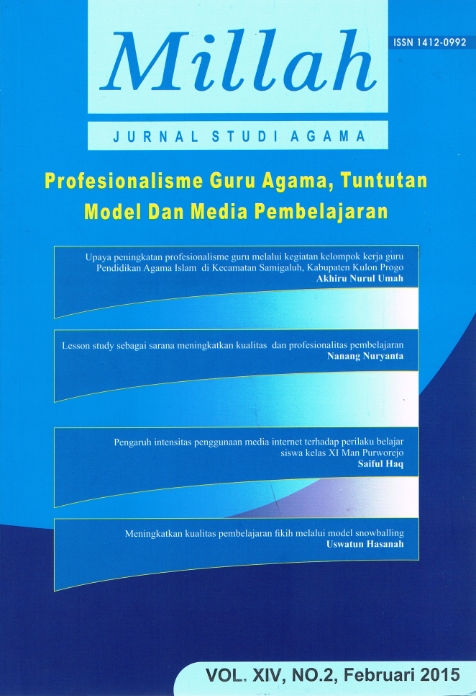Main Article Content
Abstract
As instructors, counselors, and educators, teacher determine learners’ changes. Therefore, teacher must continue to improve their knowledge, skills, and experience. They need a forum to develop their professionalism. KKG of Teacher Working Group is an ideal forum for developing teacher professionalism. In KKG, teacher will gain a lot of benefits, such as: improving their skills in managing Islamic Education teaching-learning activities, developing their ability to implement various teaching-learning models, helping teachers to fulfill teaching-learning activity requirements, helping teachers to obtain educative, technical information about Islamic Education, and improving their educational insights as well as exchanging information and experience. The study is a field of research using qualitative research. That implements observation, interview, and documentation method. The data collections used data validity tri anggulansi and sampling technique, while the data analysis applies qualitative, descriptive technique, which is collecting purposive sample and analyzing the data, reducing the data, and concluding (drawing conclusions). The result shows that the activities of Islamic Educations Teacher Working Group have corresponded to the exciting guidelines of Teaching Working Group activities. The teachers in this Islamic Education Teacher Working Group have possessed professional competence. It can be seen from the excellent teaching-learning quality of the Islamic Education subject. Teachers’ professional competence cannot be separated from several aspects that are promoted and implemented during the development of professional competence of Islamic Education Teacher Working Group in the level of sub-district. The activities of Teacher Working Group are also influenced by supporting factors and limiting factors. These factors also include internal and external aspects.
Article Details
Authors retain copyright and grant the journal right of first publication with the work simultaneously licensed under a Creative Commons Attribution (CC-BY-SA) 4.0 License that allows others to share the work with an acknowledgment of the work’s authorship and initial publication in this journal.




